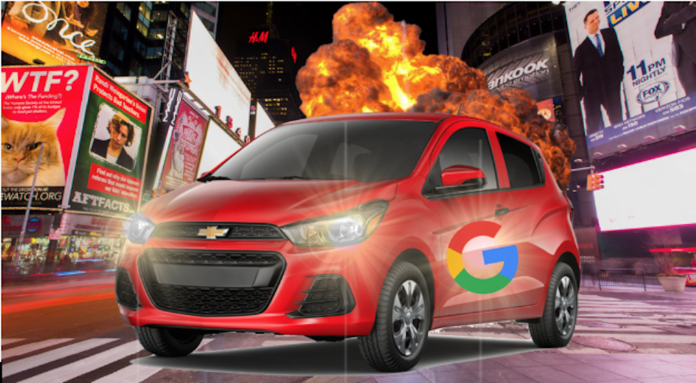Among all domestic automakers, Chevrolet ranks among the finest (and most consistent) in terms of integrating available infotainment technology. From cars and trucks to crossovers and SUVs, Chevy’s lineup sets a bar for which other automakers should aspire to. Their success at integrating tech amenities makes their offerings adaptable, serving as family vehicles or mobile offices with equal confidence. That said, even Chevy’s lineup includes a misstep here or there…but we’ll get back to that, later on. Let’s talk about technology…
As reported in recent weeks, Google is planning a significant update to its Gmail interface as well as a number of new features geared towards privacy and security, both personal and professional. The latter is a welcome follow-up to the 2017 update to Gmail’s privacy features that discontinued the scanning of email content for ad placement and SEO.
“We’re working on some major updates to Gmail (they’re still in draft phrase),” a Google spokesperson shared. “We need a bit more time to compose ourselves, so can’t share anything yet – archive this for now, and we’ll let you know when it’s time to hit send.”
In terms of the restyled interface, not much is known aside from the expectation of a “fresh, clean look for Gmail on the web.” But in terms of the updated privacy features, it is widely rumored that Gmail will now feature a ‘Confidential Mode’ as well as a ‘Timebomb’ features. The former will allow users to control what options are available to recipients of their message, disabling forwarding, copying, downloading, or printing the content. As for the latter, the feature will actually be quite literal, allowing an email to ‘self-destruct’ after a predetermined amount of time rendering it non-existent to any searchers or unwelcome viewers.
No-one in automotive reporting should be suppressed to learn that Chevy plans to evolve their own technology to incorporate similar privacy features. In a recent press conference, GM’s Executive Vice President and President of North America, Alan Batey explained further.
“General Motors believes in the right to privacy; be it in your home, in your professional life or yes, even within the confines of your Chevy, GMC, Buick or Cadillac. But what does that mean? In a world of constant connectivity, video monitoring, GPC tracking, and security checks, how can we possibly speak to the existence of privacy? Here at General Motors, we believe that we have the answer….”
“Imagine a car buyer with a limited budget. But just because they can only afford a Chevy Spark, Sonic or Cruze doesn’t mean they want to be SEEN in one (I know I wouldn’t want to be, and I’m the president of the damn company)! But what if the car had privacy features which were enacted the moment he got behind the wheel? What if stealth technology made it invisible to both technology and the human eye? What if the upholstery was woven from narcotic fibers that rendered passengers unable to talk about the car? And in the event that you were accidentally seen behind the wheel of the car, what if it could self-destruct immediately, destroying any evidence of ownership? How’s that for privacy?”
While Mr. Batey’s pitch was certainly exciting, it was also rather confusing. Were Chevy vehicles now laced with soporific drugs? Would they be visible to other drivers and pedestrians alike? GM would later release a statement clarifying that Mr. Batey’s speech was unsanctioned by the company and that there were no such plans in place. In fact, the existence of technology that renders devices invisible to the naked eye has been widely debunked. Apparently, Mr. Batey had been rendered delusional after eating some out-dated summer slaw from the corporate canteen. General Motors has issued an apology to the automotive press community as well as Chevy enthusiasts (and haters) everywhere.
But hey, those Gmail updates sound pretty sweet. Right?












